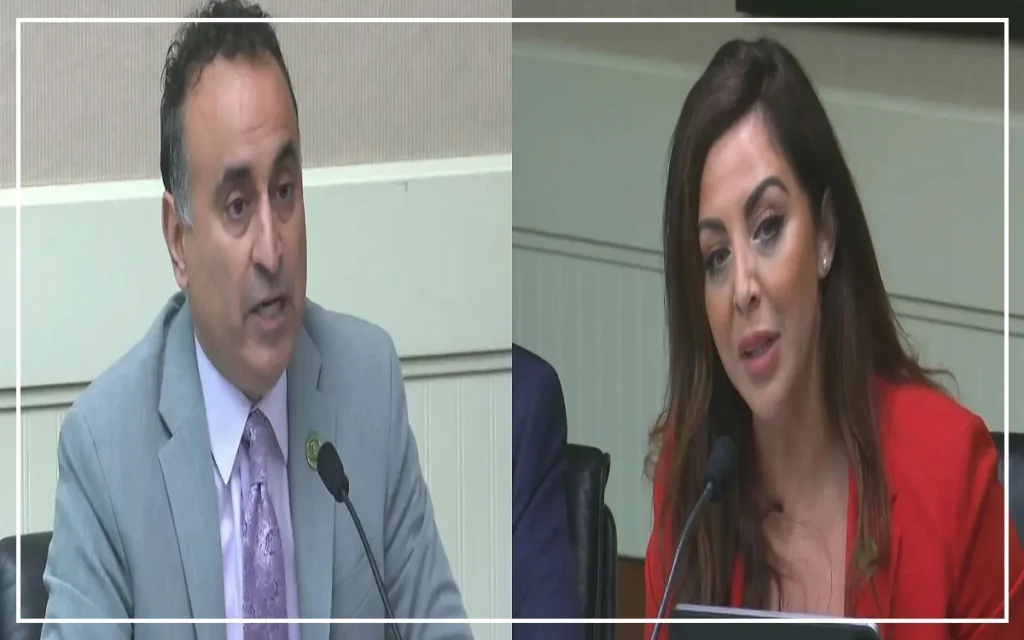|
Getting your Trinity Audio player ready...
|
The California State Assembly witnessed an emotional exchange between lawmakers over the controversial topic of reparations for African Americans. The discourse took an unexpected turn when a Republican legislator argued that forcing Asian and Latino communities to contribute to reparations payments was
fundamentally unfair,
prompting a visibly moved response from a Democratic colleague [1].
The Reparations Bill
At the center of this political storm is Assembly Bill 3121, which proposes the establishment of a reparations program for African Americans in California. The bill, introduced by Assemblymember Shirley Weber in 2020, aims to address the lingering effects of slavery and systemic racism by providing financial compensation to eligible individuals [2].
While the concept of reparations has gained traction in recent years, the implementation and funding mechanisms have remained contentious issues. The current debate revolves around how the state plans to finance this ambitious program, estimated to cost billions of dollars.
Republican Opposition
During the floor debate, Republican Assemblymember James Gallagher voiced his concerns about the bill’s potential impact on other minority communities. Gallagher argued that requiring Asian and Latino Californians, many of whom are recent immigrants or descendants of immigrants, to contribute to reparations payments through their tax dollars was
fundamentally unfair and divisive [3].
Gallagher stated,
We’re asking communities who have faced their own struggles and discrimination in this country to bear the financial burden of addressing historical injustices they had no part in. This approach risks creating new tensions rather than healing old wounds.
His comments sparked immediate controversy, with supporters of the bill accusing him of attempting to pit minority communities against each other.
Democratic Response
The emotional climax of the debate came when Democratic Assemblymember Reggie Jones-Sawyer, a strong proponent of the reparations bill, took the floor to respond to Gallagher’s remarks. Visibly moved and struggling to maintain his composure, Jones-Sawyer delivered an impassioned rebuttal.
To suggest that addressing centuries of systemic oppression and economic disenfranchisement is unfair to other communities is to fundamentally misunderstand the purpose and moral imperative of reparations,
Jones-Sawyer declared, his voice quavering.
This isn’t about punishing anyone; it’s about acknowledging a debt long overdue and taking concrete steps to heal the wounds of our past [4].
The Broader Context
This latest clash in the California Assembly reflects the broader national debate surrounding reparations. As more states and municipalities consider similar measures, questions of fairness, practicality, and potential unintended consequences continue to dominate the discourse.
Supporters argue that reparations are necessary to address the persistent racial wealth gap and the long-term effects of policies such as redlining and discriminatory lending practices. Critics, however, contend that such programs could be divisive and potentially unconstitutional [5].
Expert Opinions
Dr. William Darity Jr., a prominent economist and reparations scholar at Duke University, weighed in on the California debate.
While the intention behind the California bill is commendable, it’s crucial to recognize that effective reparations require federal action and funding. State-level programs, while symbolically important, risk falling short of addressing the full scope of historical injustices [6].
Looking Ahead
As the debate continues, the California Assembly faces the challenge of balancing competing interests and concerns. The outcome of this legislative battle could have far-reaching implications, not only for California but for the national conversation on racial equity and restorative justice.

With the vote on Assembly Bill 3121 looming, all eyes are on Sacramento. Whatever the result, it’s clear that the issue of reparations will remain a contentious and emotionally charged topic in American politics for the foreseeable future.
For More News Update Visit California News



